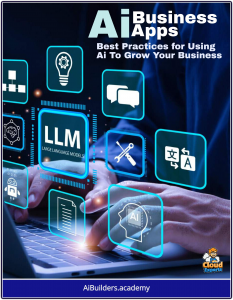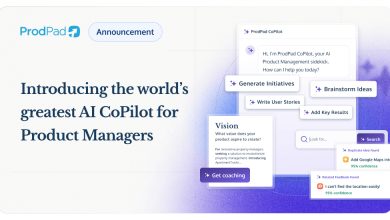 In today’s fast-paced, data-driven business landscape, Revenue Operations (RevOps) has emerged as a critical framework for aligning sales, marketing, and customer success teams to drive sustainable growth.
In today’s fast-paced, data-driven business landscape, Revenue Operations (RevOps) has emerged as a critical framework for aligning sales, marketing, and customer success teams to drive sustainable growth.
By unifying these traditionally siloed functions, RevOps optimizes the revenue engine, ensuring efficiency, predictability, and scalability.
However, as organizations scale and adopt an ever-growing stack of tools—CRMs, marketing automation platforms, sales engagement software, and more—managing workflows across these systems becomes increasingly complex.
Enter Artificial Intelligence (AI), a transformative force that is redefining RevOps by enhancing sales force applications and interconnecting workflows through intelligent agents. This article explores how “RevOps AI” leverages AI agents to streamline processes, boost productivity, and elevate revenue outcomes.
The Evolution of RevOps and the AI Imperative
RevOps is fundamentally about breaking down barriers between departments and creating a seamless revenue-generating ecosystem. Traditionally, this has relied on human oversight, standardized processes, and integrated software solutions.
However, the sheer volume of data, the diversity of tools, and the need for real-time decision-making have pushed the boundaries of what manual intervention can achieve. AI steps in as a force multiplier, automating repetitive tasks, uncovering actionable insights, and enabling dynamic interconnections across disparate systems.
In sales force applications—such as Salesforce, HubSpot, or Outreach—AI is no longer a futuristic promise but a present-day necessity. From predictive analytics to personalized outreach, AI enhances every stage of the sales cycle. When integrated into RevOps practices, it creates a cohesive, intelligent framework that drives efficiency and results.
The Role of AI Agents in RevOps
At the heart of RevOps AI lies the concept of AI agents—autonomous or semi-autonomous software entities capable of performing tasks, making decisions, and interacting with other systems or humans.
Unlike traditional automation, which follows rigid, predefined rules, AI agents leverage machine learning, natural language processing (NLP), and contextual awareness to adapt and optimize workflows dynamically. In the context of RevOps, these agents serve as the connective tissue between sales force applications and other revenue-related tools, enabling a unified, end-to-end process.
Here’s how AI agents enhance RevOps practices:
1. Workflow Interconnection Across Apps
Sales teams rely on a constellation of tools: CRMs for managing customer data, communication platforms like Slack or Microsoft Teams for collaboration, and sales engagement tools for outreach. Disjointed workflows across these apps often lead to inefficiencies—data silos, duplicated efforts, and missed opportunities. AI agents bridge these gaps by acting as intelligent intermediaries.
For example, an AI agent can monitor a lead’s activity in a CRM (e.g., a high-value prospect updates their status), extract relevant details, and automatically trigger a personalized email sequence in a sales engagement tool like Outreach. Simultaneously, it can notify the account manager via Slack with a summary of the lead’s profile and recommend next steps based on historical data. This seamless interconnection eliminates manual handoffs, reduces latency, and ensures alignment across teams.
2. Data Synchronization and Enrichment
RevOps thrives on clean, accurate, and up-to-date data. AI agents excel at maintaining data hygiene by synchronizing information across platforms in real time. For instance, if a prospect updates their contact details in a marketing automation tool like Marketo, an AI agent can instantly reflect that change in the CRM and notify the sales team, preventing outreach errors.
Beyond synchronization, AI agents enrich data by pulling insights from external sources—such as LinkedIn, company websites, or industry reports—and integrating them into sales force applications. This enriched dataset empowers sales reps with deeper context, enabling more targeted and meaningful conversations.
3. Predictive Insights and Opportunity Scoring
AI’s predictive capabilities are a game-changer for RevOps. By analyzing historical sales data, customer behavior, and market trends, AI agents can score leads and opportunities with pinpoint accuracy. This allows sales teams to prioritize high-potential prospects, optimizing resource allocation and improving conversion rates.
For example, an AI agent integrated into Salesforce might identify patterns indicating which leads are most likely to close based on factors like engagement frequency, company size, or budget signals. It can then push these insights to the sales team, along with tailored recommendations for outreach timing and messaging, all while updating dashboards for leadership visibility.
4. Automated Task Management
Repetitive tasks—scheduling follow-ups, logging call notes, or updating deal stages—consume valuable time that sales reps could spend engaging with prospects. AI agents automate these activities by interpreting natural language inputs (e.g., “Log my call with John at 2 PM”) and executing them across relevant apps. This not only boosts productivity but also ensures consistency in data entry, a critical factor for RevOps reporting and forecasting.
5. Personalized Customer Experiences
RevOps isn’t just about internal efficiency; it’s about delivering value to customers. AI agents enhance sales force applications by crafting hyper-personalized experiences at scale. By analyzing customer interactions across touchpoints—emails, calls, website visits—an agent can suggest tailored content, product recommendations, or upsell opportunities, which are then executed through the appropriate platform. This level of personalization strengthens relationships and drives revenue growth.
Real-World Impact: A Case Study
Consider a mid-sized SaaS company using Salesforce (CRM), Outreach (sales engagement), and Gong (conversation intelligence). Without AI, sales reps manually update deal statuses, craft outreach emails, and review call recordings for insights—a process prone to delays and errors. By deploying AI agents as part of their RevOps strategy, the company transforms its workflow:
An AI agent monitors Gong recordings, extracts key takeaways (e.g., “Customer expressed budget concerns”), and logs them in Salesforce. Based on this insight, it triggers a customized email in Outreach addressing the concern, complete with a discount offer. The agent then alerts the sales manager via Slack, providing a real-time update on the deal’s progress.
The result? Faster response times, higher engagement rates, and a 20% increase in deal closures within three months—all while reducing manual workload by 30%.
Challenges and Considerations
While the potential of RevOps AI is immense, implementation requires careful planning. Key challenges include:
Integration Complexity: Connecting AI agents to legacy systems or fragmented tech stacks can be technically demanding.
- Data Privacy: Handling sensitive customer data across platforms necessitates robust security and compliance measures.
- Adoption: Sales teams may resist AI-driven changes unless they see clear value and receive adequate training.
To overcome these hurdles, organizations should start with a pilot project—integrating AI agents into a single workflow—before scaling across the RevOps ecosystem. Partnering with AI-savvy vendors and ensuring cross-functional buy-in are also critical steps.
The Future of RevOps AI
As AI technology evolves, its role in RevOps will deepen. We can expect agents to become more autonomous, capable of negotiating deals, resolving customer inquiries, and even predicting market shifts with minimal human input. The rise of multi-agent systems—where specialized AI agents collaborate on complex tasks—will further enhance interconnectivity, creating a self-optimizing revenue engine.
RevOps AI represents the next frontier in revenue optimization, blending the power of artificial intelligence with the strategic vision of Revenue Operations. By deploying AI agents to interconnect workflows across sales force applications, businesses can eliminate inefficiencies, empower their teams, and deliver exceptional customer experiences. In an era where agility and precision define success, embracing RevOps AI isn’t just an option—it’s a competitive imperative. As organizations continue to harness this technology, the line between operational excellence and revenue growth will blur, paving the way for a smarter, more unified future.



